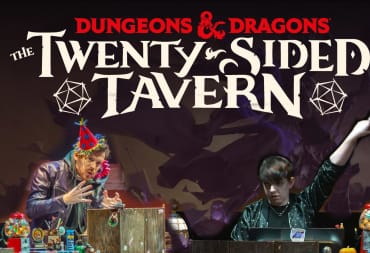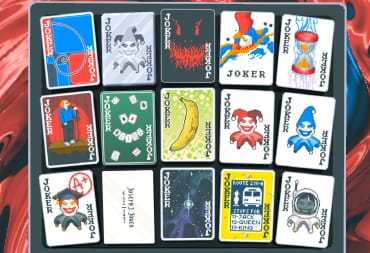Imagine you are exploring a remote mountain peak in the MMO of your choice. There is snow on the ground and you leave footprints in the powdery whiteness. When you reach the summit, you make camp to celebrate. Eventually you are distracted by other adventures and you leave.
After a couple of months you decide to return with a friend. You are tickled to discover that no other players have been here since your last foray up the mountain. You know this because you can see your previously left tracks in the snow, but no one else's.
The cold remnants of your camp fire remain. You and your friend make camp in the same location as last time. With new tracks and some refuse from your provisions, you have placed your stamp on this small part of the world. This time you decide to leave some materials and provisions near the site. You place them neatly under a small rocky outcrop.
When you eventually do return, you notice bear tracks and find that many of your belongings have been scattered about the landscape. All the food is missing. Apparently, some wild animals were attracted to the area by the delicious biscuits you left for yourself. Maybe this time you'll leave some traps before you go.
The above is a colorful interpretation of the type of persistence Improbable aims to achieve. That's not their only goal though — They plan to deliver massive and persistent worlds more inexpensively and efficiently than the current standards for MMO-technology allow. If those things weren't ambitious enough, Improbable also claims their technology will make it possible to play with more people than ever before. Imagine playing battlefield not just with 40, or 100 people on the same map, but thousands, a real army.
Indeed, Improbable's founder, 26 year old Cambridge graduate Herman Narula seems to have many interesting and amazing visions for what his technology should eventually be able to do. Gunfire could cause blood splatters that never go away.
The leaves of trees could gather on the street-sides, each individual leaf accounted for and mirrored across the worlds of thousands of players. Corpses could remain until picked apart by vultures and vermin. I could spend hours imagining or reiterating how this technology could be implemented, but now that I've given you a good idea, I'll leave the rest of the day-dreaming to you.
Below. A presentation from Narula. In it he outlines what he hopes his technology will do, and some of the current hurdles in the gaming industry as he see them.
When considering a company with the name "Improbable," — a company that promises to revolutionize the online gaming world. One could be forgiven for thinking that all this is some kind of hoax or April Fools joke.
A detailed look at Improbable's website doesn't help matters. There's not a lot of information there. Two paragraphs about Improbable's ambitions, a list of team members, a page that describes the benefits of working for Improbable, and a list of open positions.
It really does seem pretty sketchy, or desolate, at the very least. However, a closer look at some of the employees listed lends some credibility to Improbable's ambitions. The employee roster boasts talent coming from Google, Ubisoft and many other well known organizations. It's doubtful some of these talented individuals would attache their name to a fantasy or a scam.
Exact details as to how Improbable plans to implement these ground-breaking new online features are still somewhat vague. In an effort to help the world understand its endeavors, Narula recently tried to explain how the technology worked at GDC this year.
"It's about having no game server. What you've always seen has been game worlds where there's one server for one region and another server for another region, these very neat lines. And the servers are actually just the same game engine that's running on your computer. ... But what if you didn't do that? What if, instead of that, actually you had thousands of tiny, very limited processors -- call them mini servers, like a swarm of insects? And what if, instead of having boundaries, actually they all moved around many, many times a second, migrating to deal with simulation in a particular area? And they're all able to work together to model a world much bigger than any one of them could understand."
Whatever that bit of colorful science fiction actually means, I'm not entirely sure, but I look forward to getting my hands on more details in the future. When Engadget tried to shine light on the subject of what the Improbable Technology actually is, they said,
"Improbable isn't just a series of servers. It's cloud-based, but it's not cloud rendering; it's almost an operating system. "
Heh. I don't think we're getting any clear answers this way, but TechRaptor has reached out to Improbable and asked for details on their technology. We eagerly await their reply.
Due to Improbable's hard to believe claims and ambitions, the company has been said to have adopted a "Show, don't tell." ethos. Indeed, Narula has even extended an open invitation for those with doubts to make a stop at their UK office and check out a demo of the technology. Narula says the technology is demonstrably working... maybe not perfectly, but working.
As far as a more accessible proof of the technology, this is likely to come in the form of a game being developed by BAFTA-winning Bossa Studios. Bossa will be using Improbable's technology with their new game, The Jackal Story. Without having seen the game myself, I'll have to settle for offering you Wired UK's description of it.
The game features a huge battle that results in piles and piles of bodies. Unlike other games, these fallen bodies don't just disappear after a few seconds. Instead, they get preyed upon by scavenging jackals, which have their own ecology. When there's more food around, the jackals proliferate and become an emergent threat within the game. Players can either take on the jackals as they appear or build defenses to prepare for the surge, or even try and tempt a creature that happens to hunt jackals into that area to control the population.
Does that sound fascinating to you? I must admit to wanting more persistent and reactive game worlds myself. To have my actions echo in some way across an almost living simulation is very tantalizing.
In the end, Improbable's claims may seem a bit far fetched. It remains to be seen whether they will be able to deliver on such grandiose ambitions. Even if their technology ends up functioning as they say it will, the question of whether developers will pick it up, or be able to make full use of it is worth asking. I think it's definitely something worth following, but what do our readers think? Is this a story that makes you excited, or highly skeptical?
Have a tip, or want to point out something we missed? Leave a Comment or e-mail us at tips@techraptor.net













